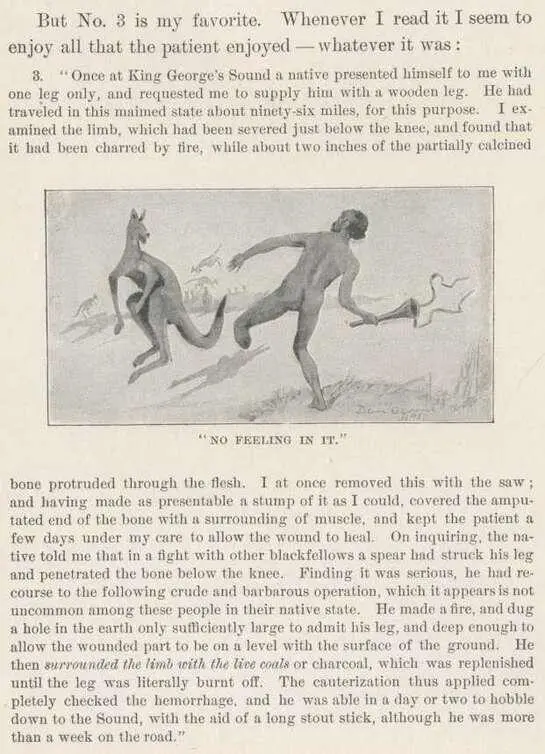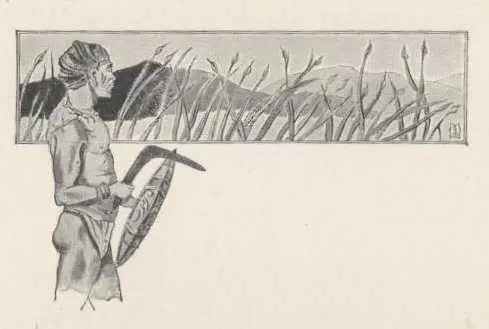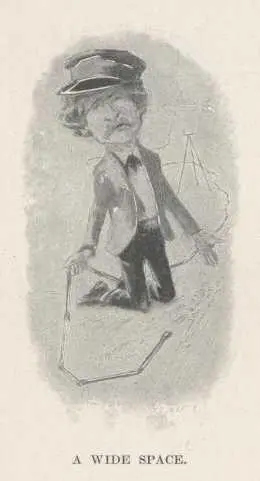Mark Twain - Following the Equator
Здесь есть возможность читать онлайн «Mark Twain - Following the Equator» весь текст электронной книги совершенно бесплатно (целиком полную версию без сокращений). В некоторых случаях можно слушать аудио, скачать через торрент в формате fb2 и присутствует краткое содержание. Год выпуска: 2004, Жанр: Классическая проза, Юмористическая проза, на английском языке. Описание произведения, (предисловие) а так же отзывы посетителей доступны на портале библиотеки ЛибКат.
- Название:Following the Equator
- Автор:
- Жанр:
- Год:2004
- ISBN:нет данных
- Рейтинг книги:3 / 5. Голосов: 1
-
Избранное:Добавить в избранное
- Отзывы:
-
Ваша оценка:
- 60
- 1
- 2
- 3
- 4
- 5
Following the Equator: краткое содержание, описание и аннотация
Предлагаем к чтению аннотацию, описание, краткое содержание или предисловие (зависит от того, что написал сам автор книги «Following the Equator»). Если вы не нашли необходимую информацию о книге — напишите в комментариях, мы постараемся отыскать её.
Following the Equator — читать онлайн бесплатно полную книгу (весь текст) целиком
Ниже представлен текст книги, разбитый по страницам. Система сохранения места последней прочитанной страницы, позволяет с удобством читать онлайн бесплатно книгу «Following the Equator», без необходимости каждый раз заново искать на чём Вы остановились. Поставьте закладку, и сможете в любой момент перейти на страницу, на которой закончили чтение.
Интервал:
Закладка:

But he was a fastidious native. He soon discarded the wooden leg made for him by the doctor, because "it had no feeling in it." It must have had as much as the one he burnt off, I should think.
So much for the Aboriginals. It is difficult for me to let them alone. They are marvelously interesting creatures. For a quarter of a century, now, the several colonial governments have housed their remnants in comfortable stations, and fed them well and taken good care of them in every way. If I had found this out while I was in Australia I could have seen some of those people—but I didn't. I would walk thirty miles to see a stuffed one.
Australia has a slang of its own. This is a matter of course. The vast cattle and sheep industries, the strange aspects of the country, and the strange native animals, brute and human, are matters which would naturally breed a local slang. I have notes of this slang somewhere, but at the moment I can call to mind only a few of the words and phrases. They are expressive ones. The wide, sterile, unpeopled deserts have created eloquent phrases like "No Man's Land" and the "Never-never Country." Also this felicitous form: "She lives in the Never-never Country"—that is, she is an old maid. And this one is not without merit: "heifer-paddock"—young ladies' seminary. "Bail up" and "stick up" equivalent of our highwayman-term to "hold up" a stage-coach or a train. "New-chum" is the equivalent of our "tenderfoot"—new arrival.
And then there is the immortal "My word!" We must import it. "M-y word!" In cold print it is the equivalent of our "Ger-rreat Caesar!" but spoken with the proper Australian unction and fervency, it is worth six of it for grace and charm and expressiveness. Our form is rude and explosive; it is not suited to the drawing-room or the heifer-paddock; but "M-y word!" is, and is music to the ear, too, when the utterer knows how to say it. I saw it in print several times on the Pacific Ocean, but it struck me coldly, it aroused no sympathy. That was because it was the dead corpse of the thing, the soul was not there—the tones were lacking—the informing spirit—the deep feeling—the eloquence. But the first time I heard an Australian say it, it was positively thrilling.

CHAPTER XXIII.
Be careless in your dress if you must, but keep a tidy soul.
—Pudd'nhead Wilson's New Calendar.
To Horsham (Colony of Victoria)—Description of Horsham—At the Hotel—Pepper Tree-The Agricultural College, Forty Pupils—High Temperature—Width of Road in Chains, Perches, etc.—The Bird with a Forgettable Name—The Magpie and the Lady—Fruit Trees—Soils—Sheep Shearing—To Stawell—Gold Mining Country—$75,000 per Month Income and able to Keep House—Fine Grapes and Wine—The Dryest Community on Earth—The Three Sisters—Gum Trees and Water
We left Adelaide in due course, and went to Horsham, in the colony of Victoria; a good deal of a journey, if I remember rightly, but pleasant. Horsham sits in a plain which is as level as a floor—one of those famous dead levels which Australian books describe so often; gray, bare, sombre, melancholy, baked, cracked, in the tedious long drouths, but a horizonless ocean of vivid green grass the day after a rain. A country town, peaceful, reposeful, inviting, full of snug homes, with garden plots, and plenty of shrubbery and flowers.
"Horsham, October 17. At the hotel. The weather divine. Across the way, in front of the London Bank of Australia, is a very handsome cottonwood. It is in opulent leaf, and every leaf perfect. The full power of the on-rushing spring is upon it, and I imagine I can see it grow. Alongside the bank and a little way back in the garden there is a row of soaring fountain-sprays of delicate feathery foliage quivering in the breeze, and mottled with flashes of light that shift and play through the mass like flash-lights through an opal—a most beautiful tree, and a striking contrast to the cottonwood. Every leaf of the cottonwood is distinctly defined—it is a kodak for faithful, hard, unsentimental detail; the other an impressionist picture, delicious to look upon, full of a subtle and exquisite charm, but all details fused in a swoon of vague and soft loveliness."
It turned out, upon inquiry, to be a pepper tree—an importation from China. It has a silky sheen, soft and rich. I saw some that had long red bunches of currant-like berries ambushed among the foliage. At a distance, in certain lights, they give the tree a pinkish tint and a new charm.
There is an agricultural college eight miles from Horsham. We were driven out to it by its chief. The conveyance was an open wagon; the time, noonday; no wind; the sky without a cloud, the sunshine brilliant—and the mercury at 92 deg. in the shade. In some countries an indolent unsheltered drive of an hour and a half under such conditions would have been a sweltering and prostrating experience; but there was nothing of that in this case. It is a climate that is perfect. There was no sense of heat; indeed, there was no heat; the air was fine and pure and exhilarating; if the drive had lasted half a day I think we should not have felt any discomfort, or grown silent or droopy or tired. Of course, the secret of it was the exceeding dryness of the atmosphere. In that plain 112 deg. in the shade is without doubt no harder upon a man than is 88 or 90 deg. in New York.
The road lay through the middle of an empty space which seemed to me to be a hundred yards wide between the fences. I was not given the width in yards, but only in chains and perches—and furlongs, I think. I would have given a good deal to know what the width was, but I did not pursue the matter. I think it is best to put up with information the way you get it; and seem satisfied with it, and surprised at it, and grateful for it, and say, "My word!" and never let on. It was a wide space; I could tell you how wide, in chains and perches and furlongs and things, but that would not help you any. Those things sound well, but they are shadowy and indefinite, like troy weight and avoirdupois; nobody knows what they mean. When you buy a pound of a drug and the man asks you which you want, troy or avoirdupois, it is best to say "Yes," and shift the subject.

They said that the wide space dates from the earliest sheep and cattle-raising days. People had to drive their stock long distances—immense journeys—from worn-out places to new ones where were water and fresh pasturage; and this wide space had to be left in grass and unfenced, or the stock would have starved to death in the transit.
On the way we saw the usual birds—the beautiful little green parrots, the magpie, and some others; and also the slender native bird of modest plumage and the eternally-forgettable name—the bird that is the smartest among birds, and can give a parrot 30 to 1 in the game and then talk him to death. I cannot recall that bird's name. I think it begins with M. I wish it began with G. or something that a person can remember.
The magpie was out in great force, in the fields and on the fences. He is a handsome large creature, with snowy white decorations, and is a singer; he has a murmurous rich note that is lovely. He was once modest, even diffident; but he lost all that when he found out that he was Australia's sole musical bird. He has talent, and cuteness, and impudence; and in his tame state he is a most satisfactory pet—never coming when he is called, always coming when he isn't, and studying disobedience as an accomplishment. He is not confined, but loafs all over the house and grounds, like the laughing jackass. I think he learns to talk, I know he learns to sing tunes, and his friends say that he knows how to steal without learning. I was acquainted with a tame magpie in Melbourne. He had lived in a lady's house several years, and believed he owned it. The lady had tamed him, and in return he had tamed the lady. He was always on deck when not wanted, always having his own way, always tyrannizing over the dog, and always making the cat's life a slow sorrow and a martyrdom. He knew a number of tunes and could sing them in perfect time and tune; and would do it, too, at any time that silence was wanted; and then encore himself and do it again; but if he was asked to sing he would go out and take a walk.
Читать дальшеИнтервал:
Закладка:
Похожие книги на «Following the Equator»
Представляем Вашему вниманию похожие книги на «Following the Equator» списком для выбора. Мы отобрали схожую по названию и смыслу литературу в надежде предоставить читателям больше вариантов отыскать новые, интересные, ещё непрочитанные произведения.
Обсуждение, отзывы о книге «Following the Equator» и просто собственные мнения читателей. Оставьте ваши комментарии, напишите, что Вы думаете о произведении, его смысле или главных героях. Укажите что конкретно понравилось, а что нет, и почему Вы так считаете.











